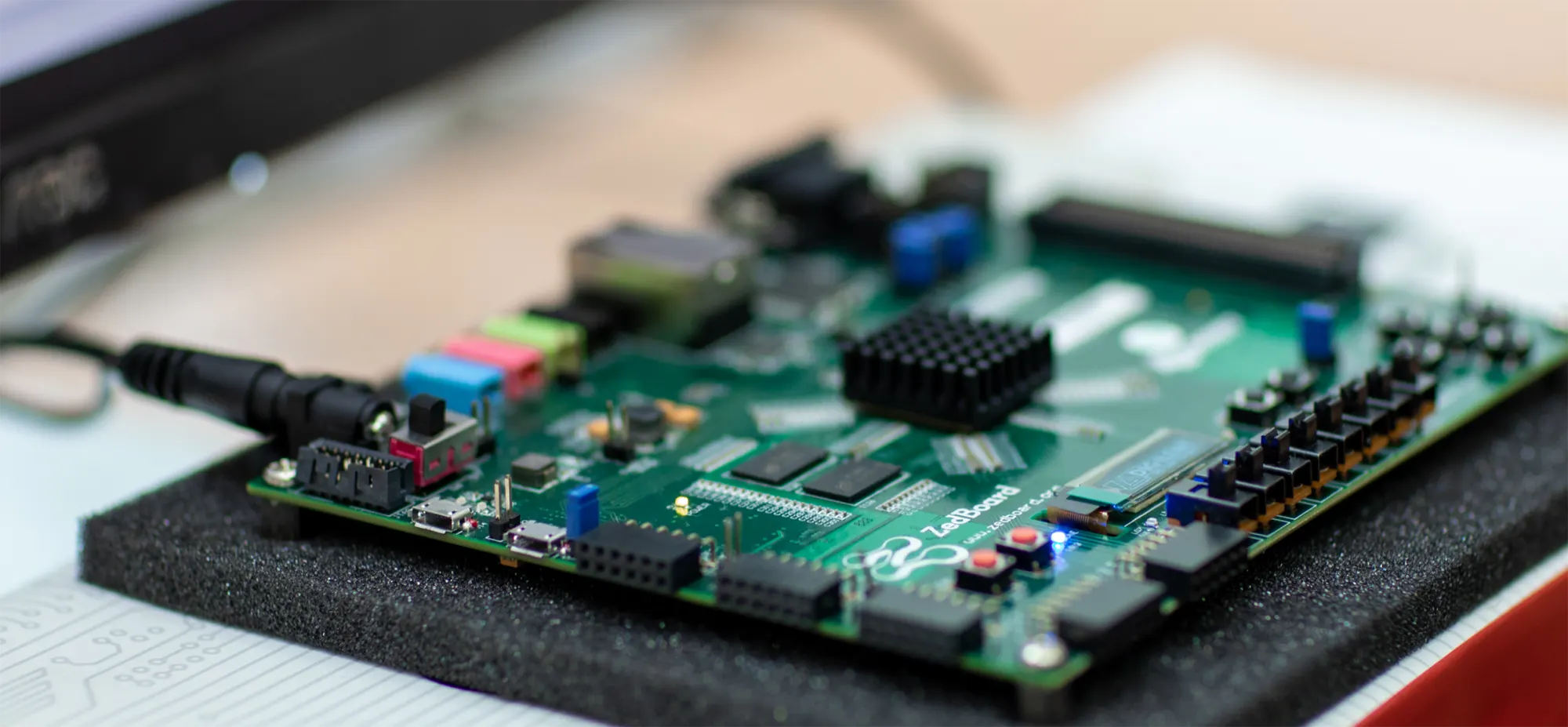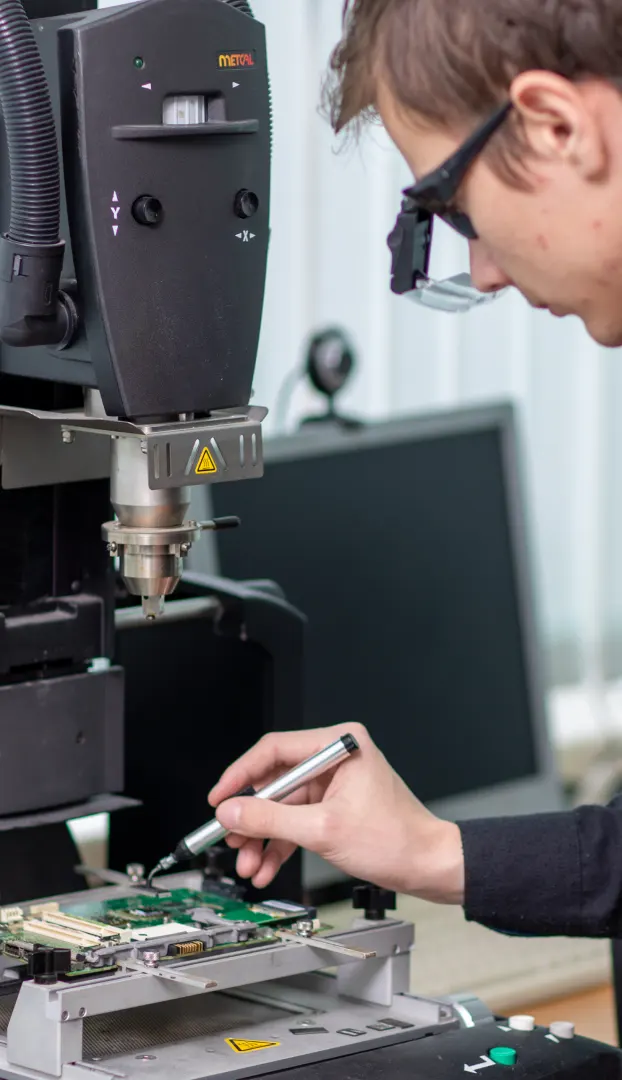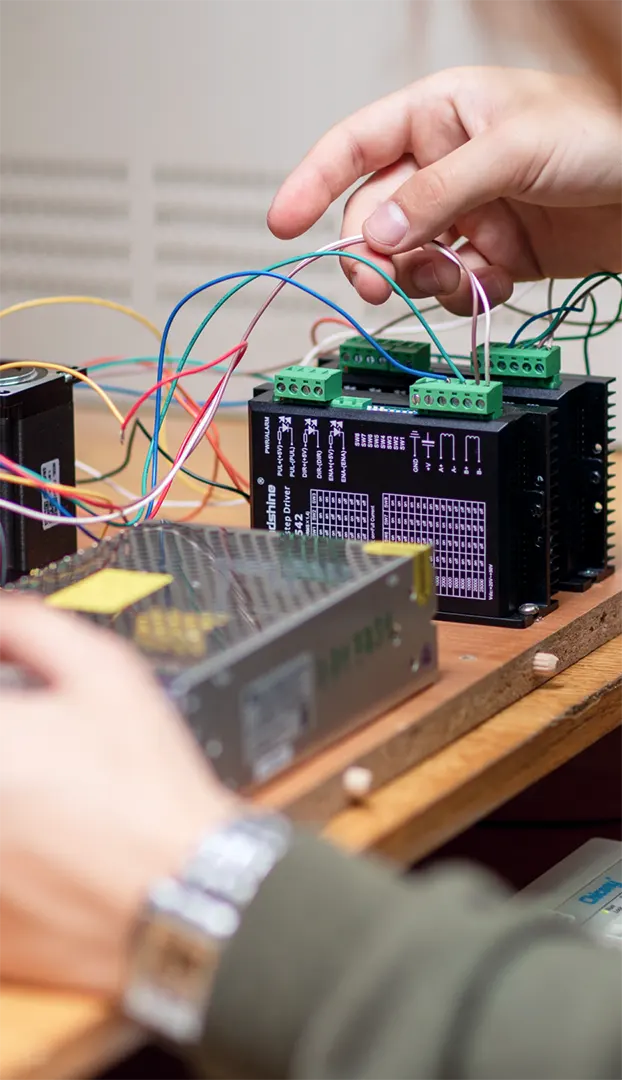Electronic Systems and Technologies

Qualification given: Bachelor / Engineer
Faculty: Faculty of Computer Science and Electronics
Department: Department of Power Engineering and Electronic
Study period: full-time – 4 year
Electronics is one of the most important fields of scientific and technological progress. Electronic systems and technologies are widely used in human life, from production to everyday life and the service sector. Smart home technologies and personal computers, network controllers, laptops and tablets, mobile phones, TVs, cameras, remote control, alarm and automation devices, radio navigation and geoinformation systems, conveyors, technological chains, information displays and industrial converters are implemented on the basis of a variety of electronic components and sensors.
The use of electronic devices, devices and systems in cars, tractors, combines, and urban transport is expanding every year. The complexity of the electronic equipment of cars in the future will increase at a enormous pace. Currently, there is a global transition to the use of electric vehicles, in which programmable electronic control systems, principles and methods of their creation are really important.
Knowledge of modern electronic systems and technologies allows a specialist to remain in demand in the labor market.

Skills and competencies
A graduate trained in this specialty will be able to:
- design, model and manufacture new or upgrade existing electronic devices and programmable control systems
- design means of automotive electronics, carry out their diagnostics
- carry out technical operation, maintenance and repair of electronic devices and systems
- make a rational choice of electronic components and sensors for electronic means
- design integrated electronics products, develop their production technology
- develop and maintain software for the operation of electronic means
- program industrial controllers
Graduate destinations
- industrial enterprises
- design bureaus
- teams of startup developers
- computing centers
- electrical laboratories for maintenance and repair of instrumentation
- departments for the development of electronic devices and devices for industrial installations
- repair, commissioning, design, research organizations

Professional activity
- design of electronic systems, devices for industrial and household purposes, mechatronic and robotic systems
- design, operation and maintenance of information-measuring and control systems of production processes
- training of qualified personnel
- scientific research and development.
Technologies of education
- The classrooms are equipped with modern multimedia facilities
- modern electronic library
- Internet via WI-FI technology
- access to university electronic educational and methodological materials, databases of the world's leading information providers through the Virtual Reading Room
- Educational materials are posted on Microsoft Teams, Google classroom, and Moodle platforms.
- innovative teaching methods:
– methods of problem-based and project-based learning
– modular rating system
– use of information technologies
– test methods of control
– electronic learning tools
– multimedia presentations, videos and test tasks.
- Peer-to-peer training is a principle in which meaningful information is transmitted through confidential communication on equal terms between trained volunteers and peers. Information transmission is held in the form of training sessions, seminars, promotions, talks, trainings, etc.
- All events are interactive, because various methods of work are used: conversations; discussions; debates; brainstorming; the method of analyzing stories and situations; role-playing, business and communication games; creative contests.
Do you have any questions?
Email: